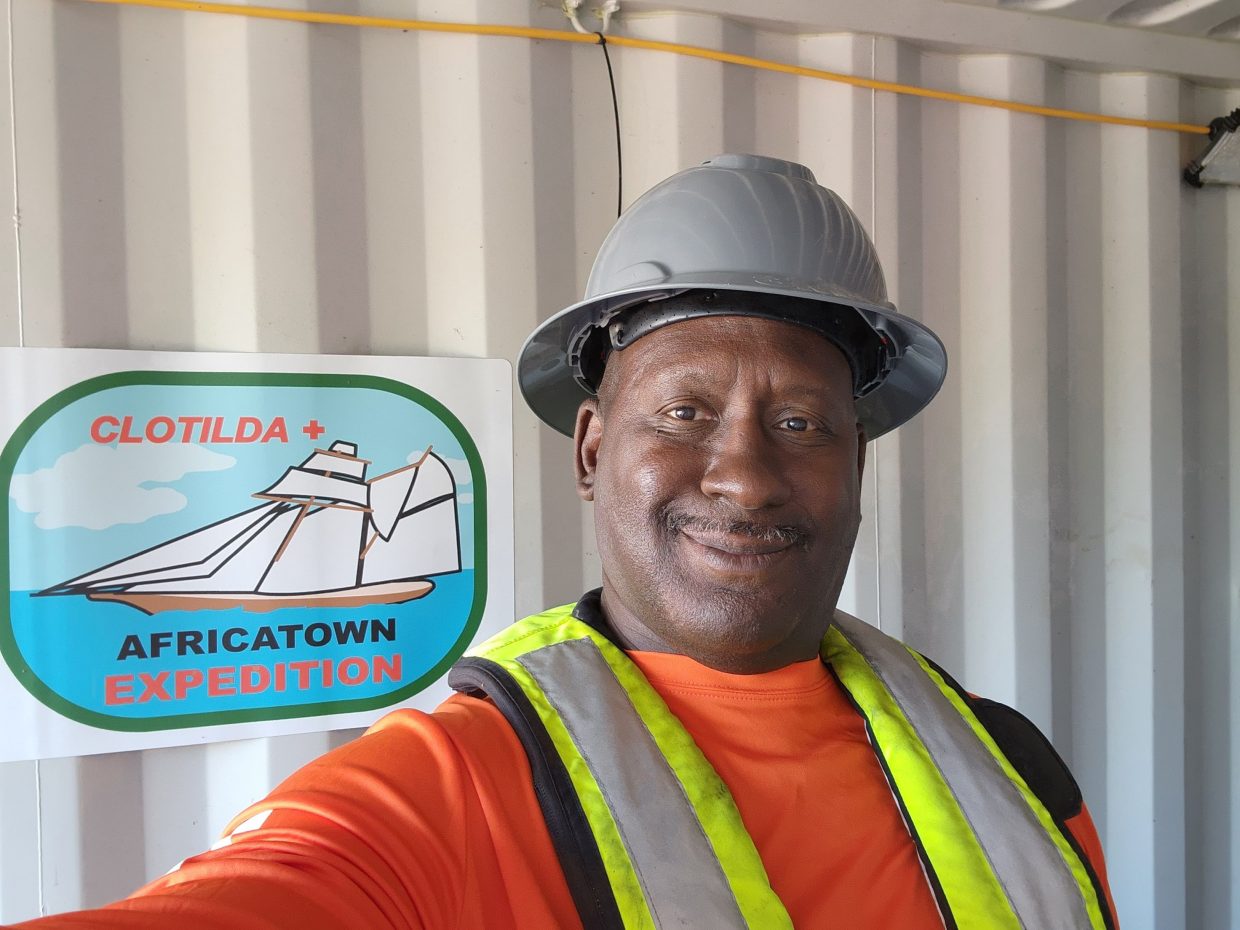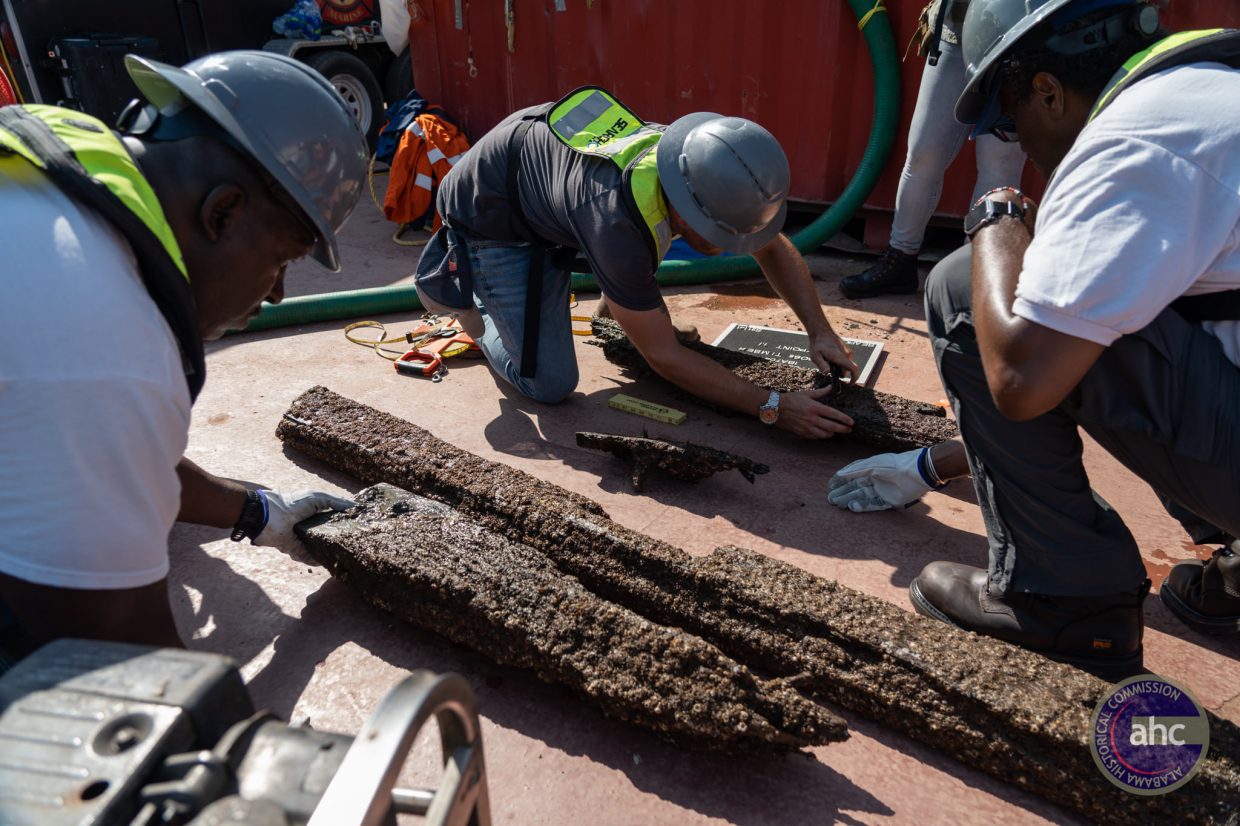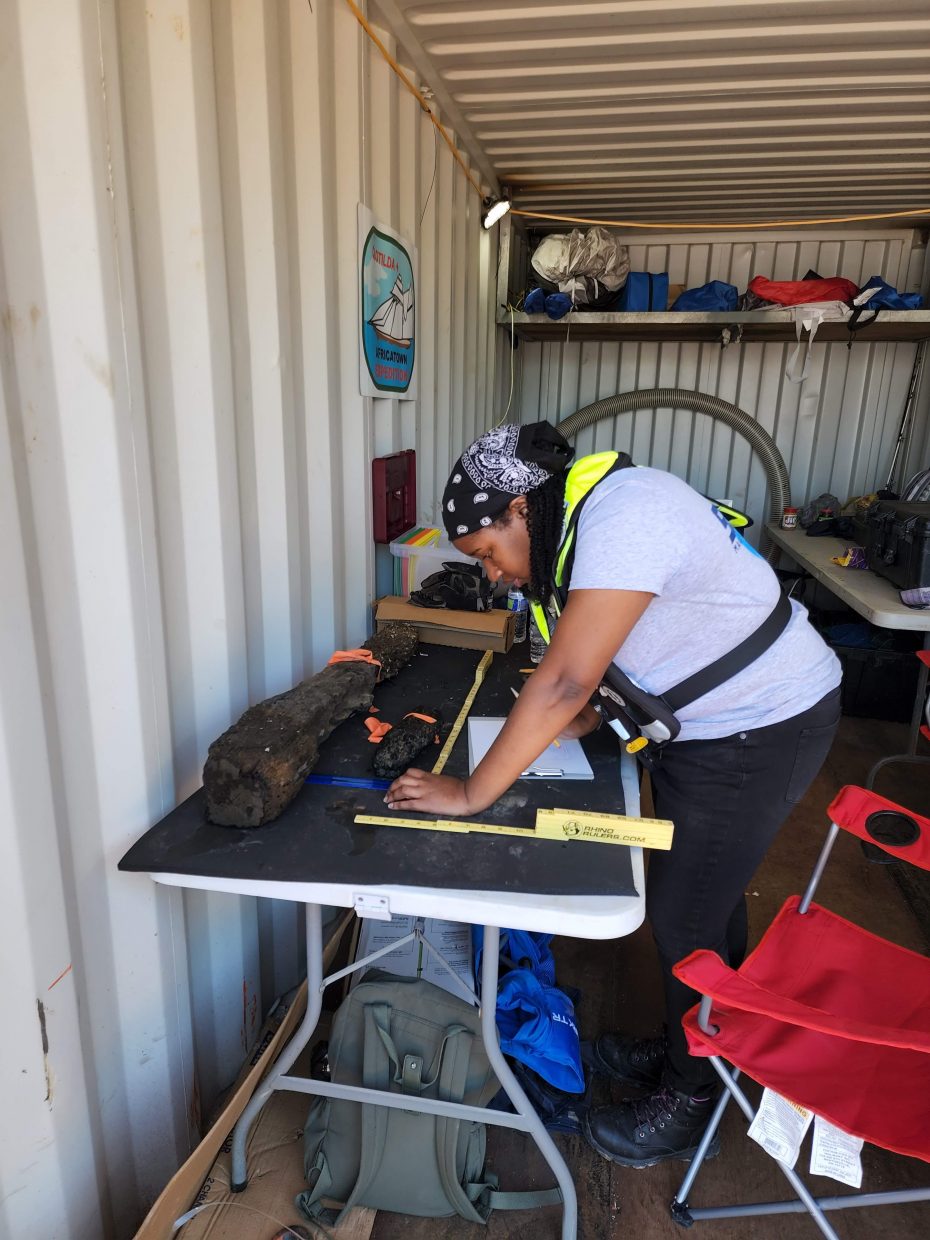‘Keeping Your Feet Wet’: Strategies for Increasing Diversity in Underwater Archaeology
In “Getting Your Feet Wet,” (out now open access in Advances in Archaeological Practice) the authors outline barriers to inclusivity writ large in underwater archaeology and provide solutions for increasing diversity in the field. The article stresses the importance of focusing on sustainability and capacity building. The authors conclude by asking, “how do we actualize change?”
A way to start the transformation toward a more inclusive field is through institutional collaboration. The recent maritime archaeological field investigation of the slave ship Clotilda is an excellent example of a successful collaboration.
Clotilda is the last known ship to carry enslaved Africans to the United States. The 86-foot, two-masted, wooden schooner brought 110 enslaved Africans to Mobile, Alabama, on July 8, 1860. The Act to Prohibit the Importation of Slaves became effective on January 1, 1808, and Clotilda’s voyage directly violated federal law. To evade federal authorities, the criminal conspirators sailed up the Mobile River, offloaded their human cargo, and set the ship on fire to hide physical evidence of the crime. Many residents of the “Africatown” community in Mobile, Alabama, are direct descendants of the enslaved Africans on Clotilda.
Archaeological evidence from multiple investigations conducted on a specific wreck site in 2018 to 2019 resulted in a determination that this was the site of the Clotilda.
From 2020 through early 2022, flooding with increased water flow in the Mobile River resulted in significant loss of sediment at the site of Clotilda. In May 2022, renowned maritime archaeologist Dr. James P. Delgado assembled a collaborative team representing diverse organizations to engage in a two-week field deployment that included archaeological and structural assessment, environmental sampling, data collection, and limited diver operations on Clotilda.
Collaborating institutions included the Alabama Historical Commission (State of Alabama government agency), SEARCH, Inc. (Cultural Resource Management), RESOLVE Marine Group (Salvage, Recovery, and Environmental Mitigation), Diving With a Purpose (International Non-Profit Organization), Society of Black Archaeologists (International Non-Profit Organization), National Geographic Society (International Non-Profit Organization), University of West Florida (Academic Research Institution), and several other academic institutions and laboratories.
Diving With a Purpose (DWP) is a leading international organization that provides education and training programs, mission leadership, and project support services for submerged heritage preservation and conservation projects worldwide with a focus on the African Diaspora. Mr. Jay V. Haigler was one of DWP’s representatives for the investigation. Mr. Haigler was involved in artifact recovery, initial examination, diver surveying, and briefing the community regarding the field activities.
The Florida Public Archaeology Network (FPAN), a program of the University of West Florida, is a world leader in public archaeology and community engagement with heritage resources. FPAN has developed public archaeological training opportunities, conducted a wide variety of stand-alone education programs and provided resources to Florida’s municipal governments in managing their resources. Ms. Bria Brooks is an African-American graduate student at the University of West Florida and a FPAN graduate assistant who was involved in artifact recovery, initial examination, and documentation of Clotilda. Ms. Brooks is pursuing a Master’s degree in Anthropology with a specialization in historical archaeology and public engagement.
In conjunction with Clotilda’s archaeological investigation, the Slave Wrecks Project, a global collaboration hosted by the Smithsonian Institution’s National Museum of African American History and Culture, is funding and executing scuba diving and public archaeology education programs within the descendant community of Africatown, Alabama, which is incorporated in the City of Mobile. These activities are intended to engage and empower the descendant community to preserve and conserve their cultural heritage resources, including the wreck of Clotilda.
Institutional collaboration is a model for actualizing change in the field of underwater archaeology.









